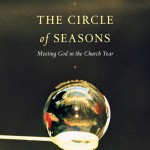Jesus said, “Love one another as I have loved you.” –John 15:12

If you asked twenty good men today what they thought the highest of the virtues, nineteen of them would reply, Unselfishness.
But if you had asked almost any of the great Christians of old, he would have replied, Love.
You see what has happened? A negative term has been substituted for a positive, and this is of more than philological importance. The negative idea of Unselfishness carries with it the suggestions not primarily of securing good things for others, but of going without them ourselves, as if our abstinence and not their happiness was the important point. I do not think this is the Christian virtue of Love.
The New Testament has lots to say about self-denial, but not about self-denial as an end in itself. We are told to deny ourselves and to take up our crosses in order that we may follow Christ; and nearly every description of what we shall ultimately find if we do so contains an appeal to desire.
If there lurks in most modern minds the notion that to desire our own good and earnestly to hope for the enjoyment of it is a bad thing, I submit that this notion has crept in from Kant and the Stoics and is no part of the Christian faith. Indeed, if we consider the unblushing promises of reward and the staggering nature of the rewards promised in the Gospels, it would seem that Our Lord finds our desires not too strong, but too weak.
We are half-hearted creatures, fooling about with drink and sex and ambition when infinite joy is offered us, like an ignorant child who wants to go on making mudpies in a slum because he cannot imagine what is meant by the offer of a holiday at the sea. We are far too easily pleased.
—C.S. Lewis, “The Weight of Glory”
The Weight of Glory and Other Addresses

I think back on my Stop Slavery series and how I almost didn’t write it. But since God was clearly nudging me in that direction, I wrote the posts. I published them.
Looking back, quite apart from the money we raised for Love 146 and IJM, I see so much joy that came out of that act of obedience. It felt good—joyfully so—to write those posts. It was joy-giving to see all of you, dear readers, rally around these girls and help end their exploitation. Many days, I came home from the coffee house after writing those posts and responding to your comments almost giddy with happiness.
And that felt wrong. After all, these girls’ lives are hellish. Why should I be so happy simply for shining a little flashlight on their plight? It’s not about me, after all. I shouldn’t be getting anything out of this. My joy seemed to negate and make null the good I was doing. Almost as if my gaining anything by a given act automatically makes that act suspect.
Lewis would say that I have placed a priority on Unselfishness, as if my going without were what mattered. As a Christian I must be selfless. I must not seek my own good. I must take up my cross and be miserable.
But that is not what Jesus did. Yes, he took up his cross. Yes, he walked the dark road to the cross. But he did it for Joy. He did it for Love.
…for the sake of the joy that was set before him [Jesus] endured the cross, disregarding its shame, and has taken his seat at the right hand of the throne of God. –Hebrews 12:2

Parenting my four is not an act of unselfishness. It is an act of love. It is love that prompts me to feed my kids good food and read them good books. That I get to enjoy the good food and the good books, too, in no way negates the love I show in feeding and reading with them. If anything, my enjoyment enhances the love. It shows them they are not simply loved but also enjoyed and enjoyable, that they are people I delight to be with.
I want to make Love my litmus test. Not: is this unselfish? But: is this loving?
As often as not, the love I show will redound upon my own head in joy, as it did when I wrote the stop slavery posts. That’s okay. That’s better than okay; that’s good. That’s the way it’s supposed to be: like the loving and being loved within the Trinity.
Love does not count the cost, it is true. But then, it doesn’t have to—because Love is wrapped up in joy. Love sees the joy of the other and looks at that, rejoices in that, rather than focusing on its own gift or sacrifice. Love doesn’t even think of the gift in terms of sacrifice, because Love experiences the beloved’s joy as Love’s own.
Jesus, for the joy set before him, endured the cross.
When the joy of giving, of loving, far outweighs any so-called sacrifice, this, too, is the path of the cross. It’s the obedience that leads to Life. It’s the love that leads to Joy.
It’s the holiday by the sea.
Photos by Doug Ireton. Used with permission, of course.
Florilegium comes from two Latin words, meaning flower (flor) and gather (legere). Legere is closely related to the Latin word for reading (lectio). So a florilegium is literally a gathering of the flowers of reading: a collation of the best words, the best books.
I hope you’ll come by every Friday to gaze on some beautiful heart-mind-and-soul flowers. (And stop in at Susan’s, too, for another bouquet).



